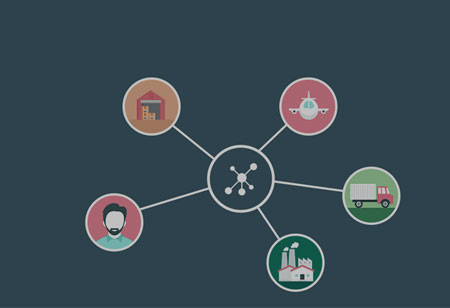THANK YOU FOR SUBSCRIBING
Future of Blockchain in Logistics Industry
Logistics industry is also one such industry that finds it useful against the issues of fraud, lack of transparency, tracking orders etc. Blockchain technology is based on distributed ledger that stores all data in decentralized storage ecosystem...

By
Apac CIOOutlook | Tuesday, January 08, 2019
Stay ahead of the industry with exclusive feature stories on the top companies, expert insights and the latest news delivered straight to your inbox. Subscribe today.
Blockchain is a technology that led to the advent of cryptocurrencies and is now being embraced in other sectors and industries. Logistics industry is also one such industry that finds it useful against the issues of fraud, lack of transparency, tracking orders etc. Blockchain technology is based on distributed ledger that stores all data in decentralized storage ecosystem which is secured by cryptography.
The Characteristics of blockchain that makes it applicable in the logistics industry are:
• Transparency: Everyone on the same blockchain network can view the data stored in the blocks providing transparency in the network.
• Immutability: All the data stored in the network can be only viewed but cannot be modified which also secures in from cyber attacks.
• Shared Ledger: Logistics industry foresees numerous benefits as each transaction is recorded on a block and across multiple copies of the ledger that are distributed over many nodes making the supply
chain highly transparent. Decentralization eliminates authority over the blockchain and the network is extremely efficient and scalable, expansion is possible as per the requirements.
See Also: Logistics & Transportation Review
Every individual on the network would be able to validate the provenance of the stock resulting in abolishment of fraud from the supply chain. Immutability characteristic of blockchain does not support modification, thus, the data once stored cannot be tampered and also cryptographic security acts as a firewall against cyber attacks.
Payments using blockchain applications such as bitcoin can also be adopted in the logistics industry which will lead to reliability and trust among the entities in a supply chain. All members of the network are connected and can access the data instantaneously speeding the overall supply chain process.
Apart from the above mentioned, there could be other uses of blockchain in the logistics industry:
• Order, receipts and other trade-related documents can also be tracked using the technology
• Combing IoT with blockchain would result in asset digitization and provide digital signatures to asset
• Information regarding the manufacturing process, assembly, and delivery can be shared securely in real time
• Compliance for product maintenance with suppliers and vendors
Measures to bring the blockchain technology in logistics industry have started to take place. Organizations are developing infrastructure to incorporate the tech and also it is being believed that the transparency factor will allow consumers to know the companies they are supporting and able to validate their goods.
See Also: Logistics Transportation Review





